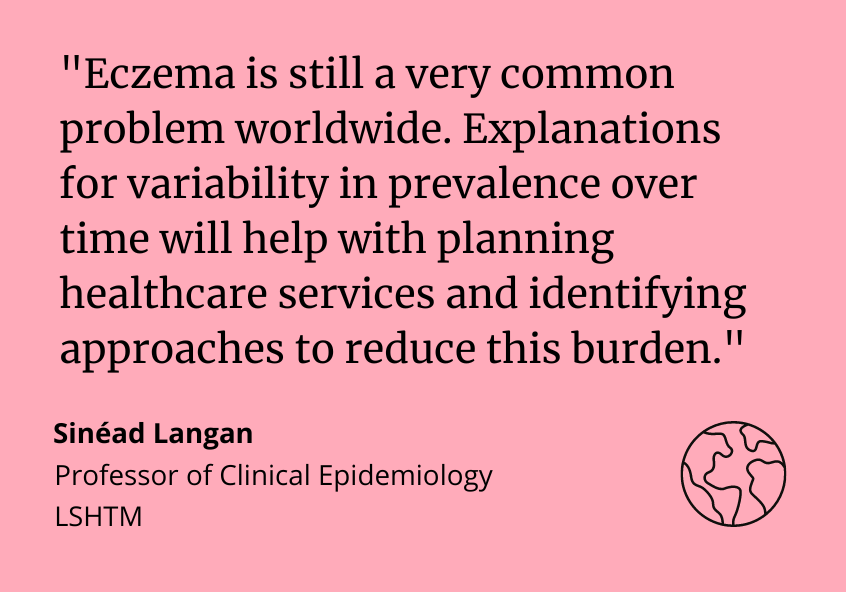Global eczema burden is substantial but variations over time are not equal
London School of Hygiene & Tropical Medicine https://lshtm.ac.uk/themes/custom/lshtm/images/lshtm-logo-black.png Wednesday 8 February 2023
Eczema (also known as atopic dermatitis or atopic eczema) is a big problem globally, which affects about one in five children and one in ten adults. The major problems it causes relate to persisting severe itch, sleeping issues (which can last for years), and stigma around having visible rashes. These issues lead to major adverse effects on quality of life.
To help people who currently have eczema and to identify approaches to prevent it, we need to understand the size of the problem around the world and whether the condition is becoming more or less common, including identifying preventative factors.
In order to look at how eczema burden is changing over time, we need to first make sure that we are all talking about the same issue. The International Study of Asthma and Allergies in Childhood (ISAAC) was a pioneering global study that set out to do this, investigating how common eczema was in childhood (six to seven-year-olds) and adolescents (12 to 13-year-olds) over decades using questionnaire data. The work of ISAAC is now being continued in another study known as the Global Asthma Network (GAN). By combining information from ISAAC and GAN, we can see what is happening to eczema globally over three decades.
In our recent paper in Clinical & Experimental Allergy, we looked at information from 150,000 children and adolescents from 27 centres in 14 countries around the world in GAN, combined with earlier ISAAC data. Overall, an average of 6% of participants had eczema with approximately one in a hundred children and adolescents having severe eczema. Although the average increase was small over time, we noticed that changes in how common eczema was over time varied greatly and some of this variation could be explained by geographic region and income.
What this means is that eczema is still a very common problem worldwide. The variability we saw in changes in how common eczema was over time provide key clues that we will now examine to identify factors that might explain these changes. This information will help with planning healthcare services for people with eczema around the world. They will also help identify approaches to help reduce this burden through future prevention.
LSHTM's short courses provide opportunities to study specialised topics across a broad range of public and global health fields. From AMR to vaccines, travel medicine to clinical trials, and modelling to malaria, refresh your skills and join one of our short courses today.
